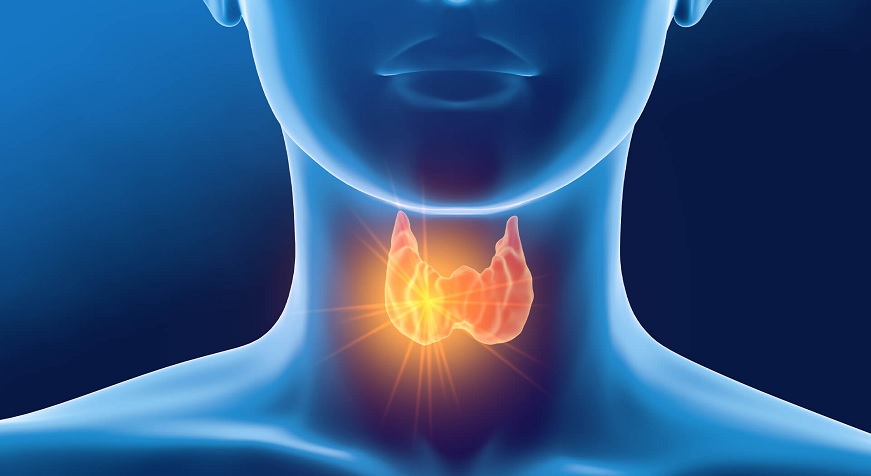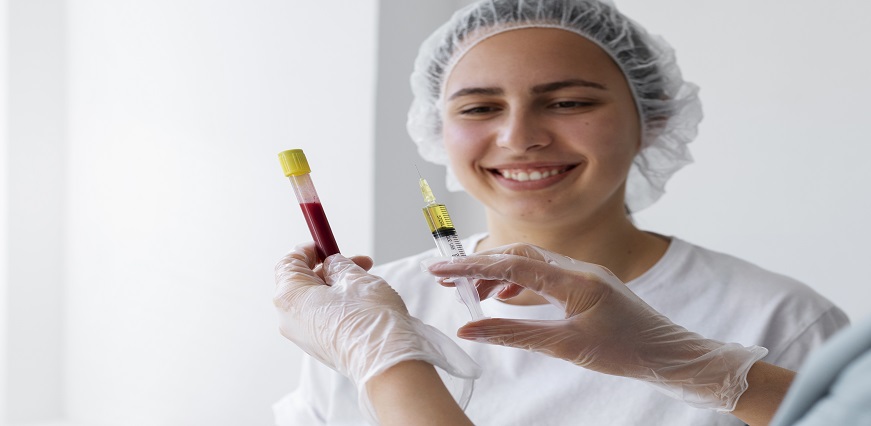

Max Lab > Lab Test in Ambala > Lab Test in Kurali > Sputum AFB Culture Test
₹ 360
10% OFF for Senior Citizens | USE CODE SS10 *
|
|
Sputum AFB Culture Test |
|
|
Sputum AFB Test, Sputum AFB Culture Test, |
|
|
Sputum |
|
|
|
|
₹ 360 |
@3x.png) Description
Description
Acid-fast bacillus (AFB) is a bacterial strain responsible for tuberculosis and other specific infections. Tuberculosis also referred to as TB, is a severe bacterial infection primarily impacting the lungs. However, it can also affect other body parts such as the brain, spine, and kidneys. Transmission of TB occurs through respiratory droplets expelled during coughing or sneezing from an infected person to others.
The sputum AFB test in Kurali, Ambala procedure, also referred to as the BK-TB bacteria test in Kurali, Ambala, is utilized for diagnosing pulmonary tuberculosis. This test in Kurali, Ambala involves examining the patient's sputum under a microscope to detect Acid Fast Bacillus (AFB). Tuberculosis is a prevalent infectious disease caused by Mycobacterium tuberculosis. Based on the results of the AFB sputum test in Kurali, Ambala, two types of pulmonary tuberculosis can be identified: AFB-positive and AFB-negative. Despite their differences, both types exhibit similar symptoms and require similar treatment. In AFB-positive pulmonary tuberculosis, the test in Kurali, Ambala shows positive results, indicating the presence of tuberculosis bacteria causing bronchial infections and lesions within the lung cavities. These findings are often observed in sputum samples. Common symptoms include persistent cough, continuous coughing, and coughing up blood. In contrast, AFB-negative pulmonary tuberculosis shows negative results on the AFB sputum test in Kurali, Ambala.
AFB test in Kurali, Ambalas are categorized into two types.
AFB Smear: The AFB smear test in Kurali, Ambala, also known as acid-fast staining, is a microscopic examination of clinical specimens to detect acid-fast bacilli, including Mycobacterium tuberculosis. This test in Kurali, Ambala involves staining the specimen using techniques like the Ziehl-Neelsen stain or the auramine-rhodamine stain. Acid-fast bacilli retain the stain and appear as red or fluorescent rods under a microscope. The AFB smear test in Kurali, Ambala provides a relatively quick and initial indication of mycobacterial infection, but it does not provide species identification or drug susceptibility information.
AFB Culture: The AFB culture test in Kurali, Ambala involves the growth and isolation of acid-fast bacilli in a specialized culture medium. This test in Kurali, Ambala is essential for species identification and drug susceptibility test in Kurali, Ambalaing. The collected specimen, such as sputum or tissue sample, is inoculated onto a suitable culture medium, such as Lowenstein-Jensen. The culture is incubated under specific conditions to allow the growth of mycobacteria. The resulting colonies can be further analyzed using biochemical test in Kurali, Ambalas or molecular methods for species identification and drug susceptibility test in Kurali, Ambalaing.
The AFB smear and AFB culture test in Kurali, Ambalas play crucial roles in diagnosing and managing tuberculosis (TB) and other mycobacterial infections. While the AFB smear test in Kurali, Ambala provides initial screening, the AFB culture test in Kurali, Ambala is necessary for definitive diagnosis, species identification, and determining appropriate treatment regimens based on drug susceptibility patterns.
At Max Lab, we offer competitive prices for the sputum AFB culture test in Kurali, Ambala, ensuring affordability without compromising quality.
....Read More@3x.png) Description
Description
Acid-fast bacillus (AFB) is a bacterial strain responsible for tuberculosis and other specific infections. Tuberculosis also referred to as TB, is a severe bacterial infection primarily impacting the lungs. However, it can also affect other body parts such as the brain, spine, and kidneys. Transmission of TB occurs through respiratory droplets expelled during coughing or sneezing from an infected person to others.
The sputum AFB test in Kurali, Ambala procedure, also referred to as the BK-TB bacteria test in Kurali, Ambala, is utilized for diagnosing pulmonary tuberculosis. This test in Kurali, Ambala involves examining the patient's sputum under a microscope to detect Acid Fast Bacillus (AFB). Tuberculosis is a prevalent infectious disease caused by Mycobacterium tuberculosis. Based on the results of the AFB sputum test in Kurali, Ambala, two types of pulmonary tuberculosis can be identified: AFB-positive and AFB-negative. Despite their differences, both types exhibit similar symptoms and require similar treatment. In AFB-positive pulmonary tuberculosis, the test in Kurali, Ambala shows positive results, indicating the presence of tuberculosis bacteria causing bronchial infections and lesions within the lung cavities. These findings are often observed in sputum samples. Common symptoms include persistent cough, continuous coughing, and coughing up blood. In contrast, AFB-negative pulmonary tuberculosis shows negative results on the AFB sputum test in Kurali, Ambala.
AFB test in Kurali, Ambalas are categorized into two types.
AFB Smear: The AFB smear test in Kurali, Ambala, also known as acid-fast staining, is a microscopic examination of clinical specimens to detect acid-fast bacilli, including Mycobacterium tuberculosis. This test in Kurali, Ambala involves staining the specimen using techniques like the Ziehl-Neelsen stain or the auramine-rhodamine stain. Acid-fast bacilli retain the stain and appear as red or fluorescent rods under a microscope. The AFB smear test in Kurali, Ambala provides a relatively quick and initial indication of mycobacterial infection, but it does not provide species identification or drug susceptibility information.
AFB Culture: The AFB culture test in Kurali, Ambala involves the growth and isolation of acid-fast bacilli in a specialized culture medium. This test in Kurali, Ambala is essential for species identification and drug susceptibility test in Kurali, Ambalaing. The collected specimen, such as sputum or tissue sample, is inoculated onto a suitable culture medium, such as Lowenstein-Jensen. The culture is incubated under specific conditions to allow the growth of mycobacteria. The resulting colonies can be further analyzed using biochemical test in Kurali, Ambalas or molecular methods for species identification and drug susceptibility test in Kurali, Ambalaing.
The AFB smear and AFB culture test in Kurali, Ambalas play crucial roles in diagnosing and managing tuberculosis (TB) and other mycobacterial infections. While the AFB smear test in Kurali, Ambala provides initial screening, the AFB culture test in Kurali, Ambala is necessary for definitive diagnosis, species identification, and determining appropriate treatment regimens based on drug susceptibility patterns.
At Max Lab, we offer competitive prices for the sputum AFB culture test in Kurali, Ambala, ensuring affordability without compromising quality.
....Read More
A butterfly-shaped gland called the thyroid is situated at the front of your ...Read More

Medical practitioners prescribe thyroid function tests to people who have sud...Read More

Hypothyroidism can be caused by a number of factors, and some of these are ea...Read More

Are you feeling tired, sluggish or experiencing unexplained weight gain? You ...Read More

In this comprehensive guide on thyroid disease in kids, we'll explore eve...Read More

The thyroid is a butterfly-shaped gland located in the neck and is wrapped ar...Read More

Thyroid nodules are growths that form in the thyroid gland located in the fro...Read More

The thyroid is a small, butterfly-shaped gland located near the throat which ...Read More

The thyroid gland is a butterfly-shaped organ that is located at the base of ...Read More